
There are a few times in the early months of your baby's life where it seems like you've got it all figured out. Then another milestone pops up, and there are adjustments to be made.
Teething is one of those exciting milestones that can also throw families for a serious loop. Teething is a more painful experience for some babies than others, so you often don't know what to expect until you're in it.
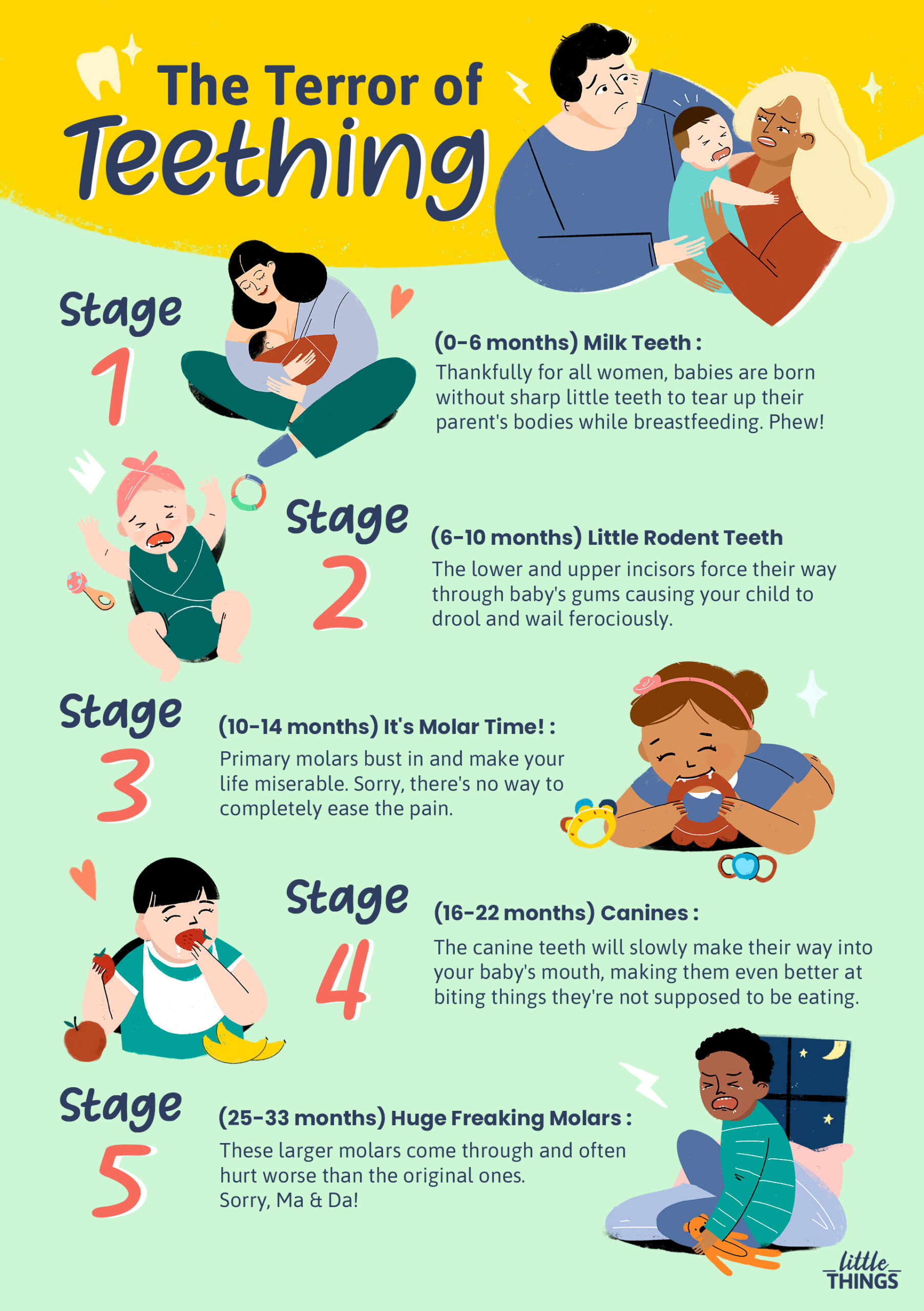
The guidance on best practices for soothing a teething baby has changed from generation to generation. Parents often find themselves on the receiving end of advice they didn't necessarily ask for, and it can make them second-guess what they're doing. If you're looking for safe and helpful remedies to help your baby get through teething, here are some suggestions.
Use Cooling Teething Toys
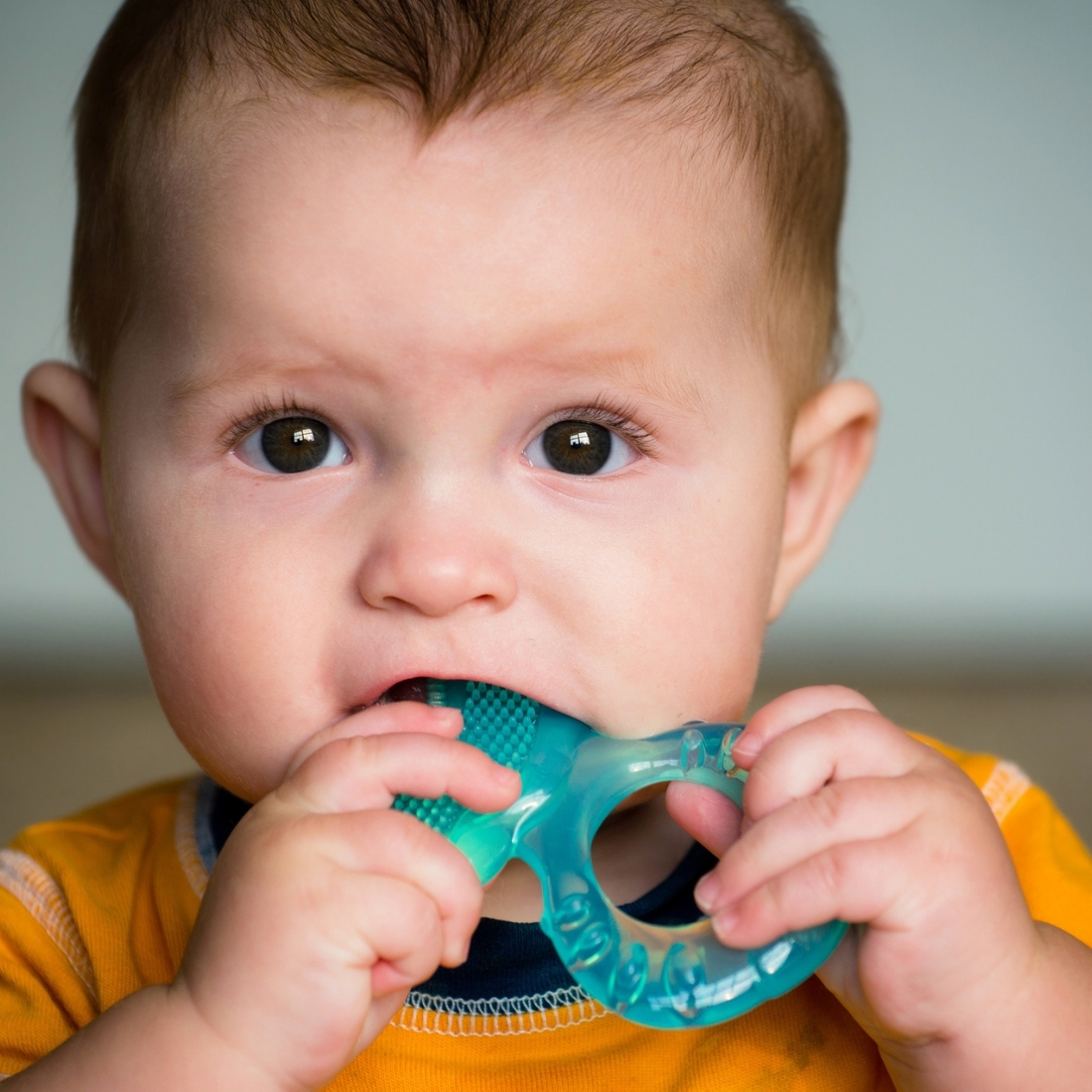
Irritated, sore gums can bother babies more at night, leading to fussiness and a loss of sleep for both parent and baby. A cool massage from a teething toy could help baby get some relief. Teething toys should be solid plastic (nothing gel-filled) and be stored in the freezer — and be inspected after each use for any choking hazards.
Try a Gum Massage

You can manually massage baby's gums with a clean finger, covered in wet gauze if you prefer. Placing a little bit of pressure on the gums will counter any pressure they feel from the tooth breaking through, providing relief.
Feed Baby Cold Foods

For babies who are teething and eating solids, cold foods can help ease the pain on gums. Try applesauce, yogurts, and fruits.
Give Baby a Frozen Washcloth

A frozen washcloth is a great item to have on hand for baby to chew on. Make sure there are no loose threads before giving it to your little one. Not only can they comfortably and safely chew on it, but it will also absorb excess drool, preventing skin irritations that can arise from that.
Breastfeed More or Freeze for Cool Relief

The motion of breastfeeding is soothing to some teething babies, so it may be worth it for breastfeeding parents to try more often during that time. You can also freeze breastmilk into ice cubes that you can later smash into frozen chips small enough to be safe for baby.
Serve Up Some Teething Biscuits

Teething biscuits can help provide relief to babies over 8 months old. These dissolvable soft solids don't crumble or crack in the mouth when stimulated by the gums, helping soothe and relieve inflammation as teeth come in.
Ask Your Doctor About Over-the-Counter Pain Relievers
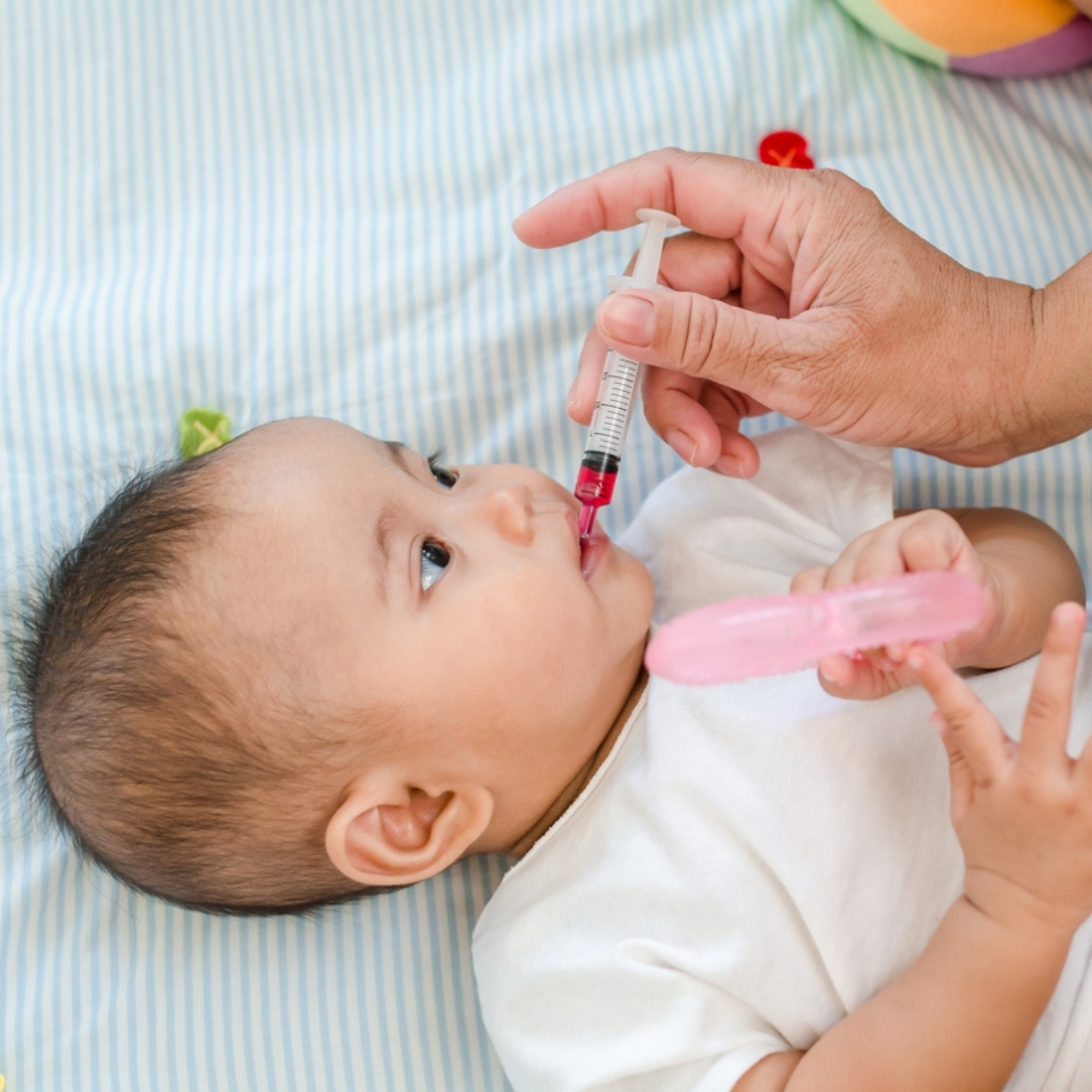
In some cases, baby may need some over-the-counter medication to handle teething symptoms. It's important to consult your doctor before determining if this is the best course of action for your baby.
Don't Use Homeopathic Teething Tablets
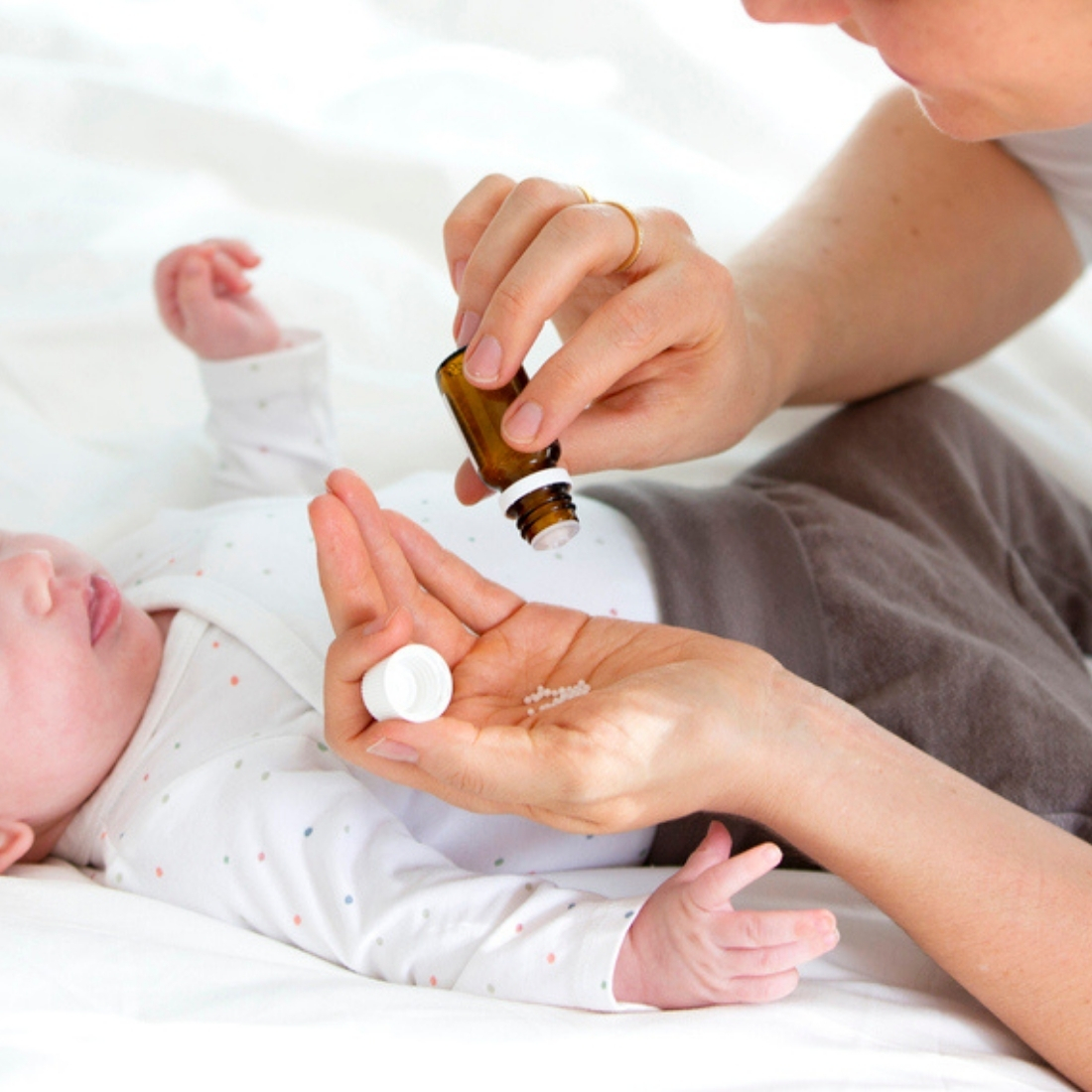
The Food and Drug Administration has shared that homeopathic teething tablets and gels have not been proven to be effective in relieving teething symptoms. In some instances, they can be high in an ingredient called belladonna. For some, that ingredient can lead to seizures and difficulty breathing.
Stay Away From Medications Including Benzocaine or Lidocaine

These may be common pain relievers and can even be named in some teething-specific topics. However, it's been found these pain relievers can be fatal to babies.
Don't Use Amber Teething Necklaces
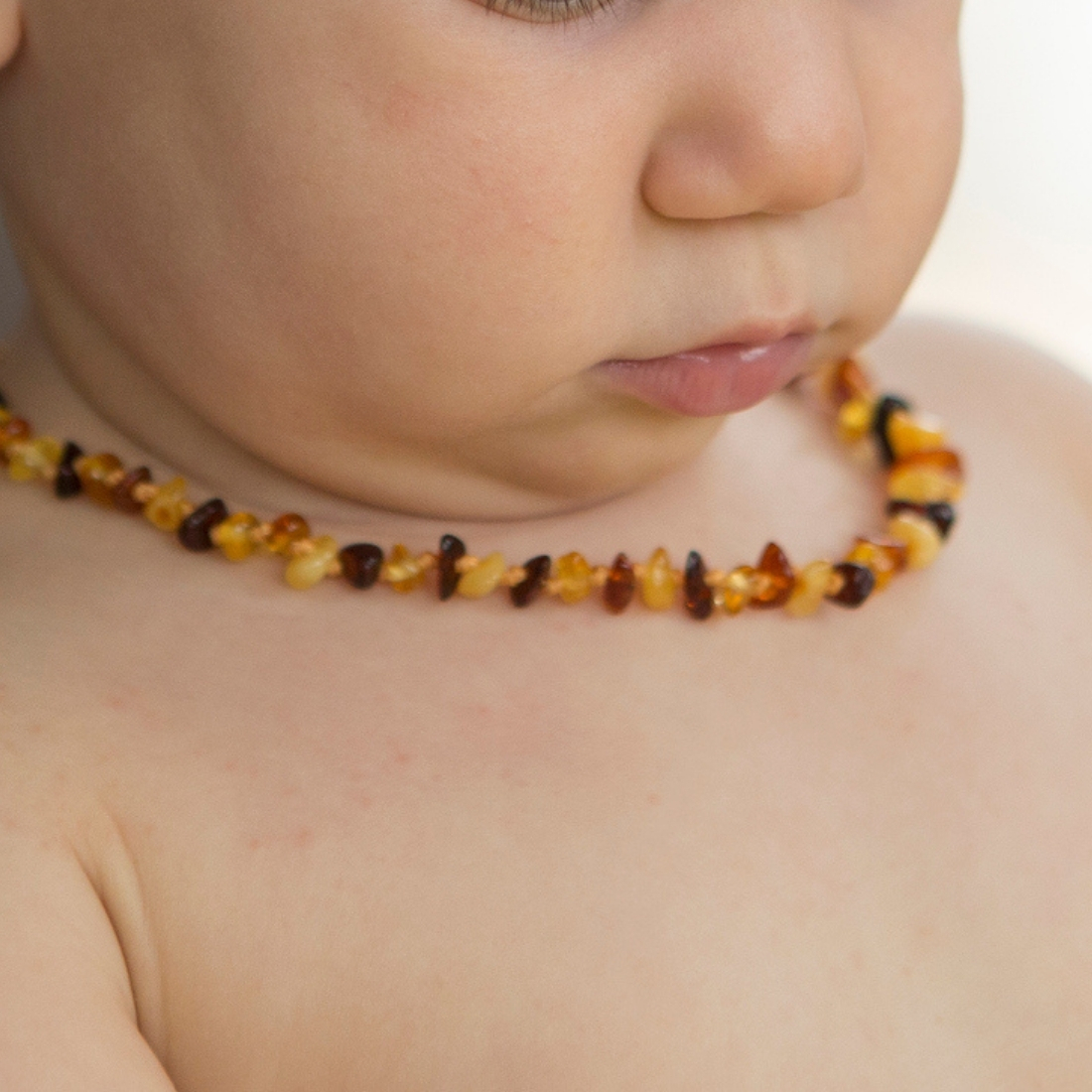
Amber teething necklaces are a way some parents choose to help their child with teething symptoms, but many pediatricians recommend against them. The idea is that when babies wear these, their body heat triggers the release of tiny amounts of oil that contains succinic acid, which then gets absorbed into the bloodstream and has an analgesic effect on swollen, sore gums. However, there's no medical evidence indicating that they work, and they can also pose choking and strangulation risks.







